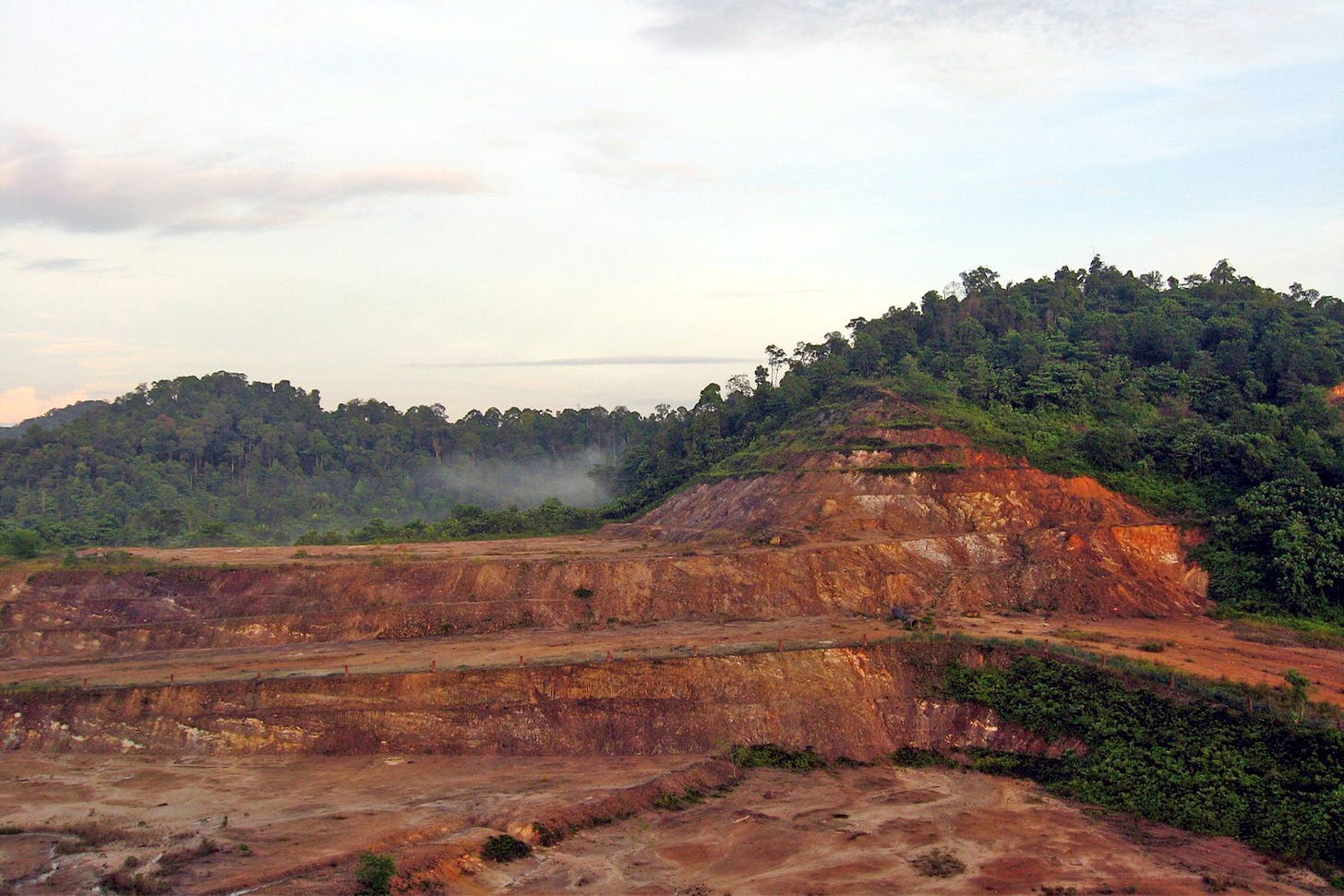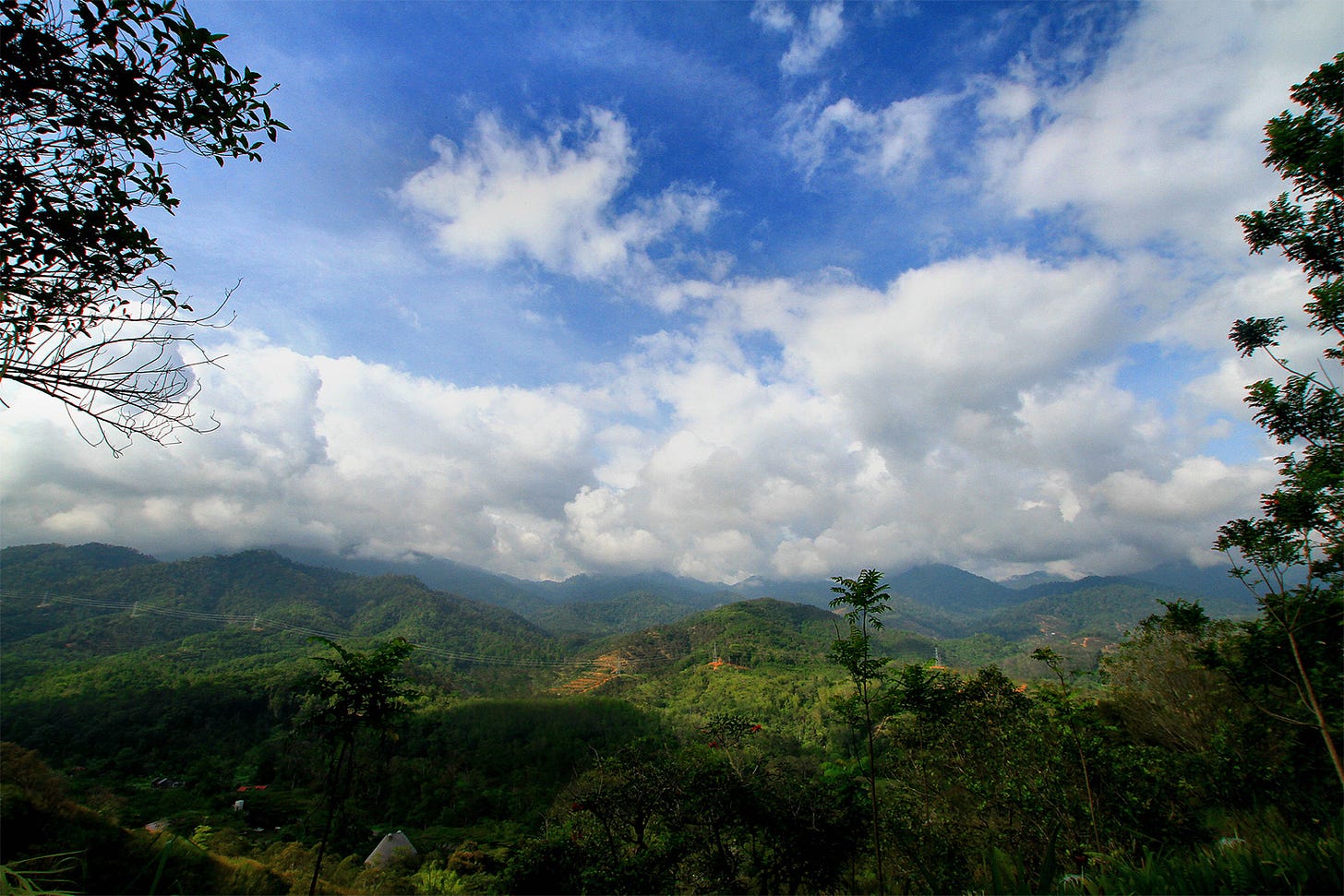Outcry in Malaysia as failure to replant forests sparks ‘cover-up’ accusation
This article was originally published in Mongabay
This article was originally published in Mongabay
Critics of a government plantation scheme have slammed the program following revelations that only a fraction of forest reserves cleared for plantations over the past decade have actually been replanted.
An investigation by environmental news site Macaranga found that only 5% of the 77,331 hectares (191,089 acres) of forest reserves cleared in Pahang state for plantations between 2012 and 2020 were replanted.
A Pahang state opposition lawmaker has called the program a “cover-up” for a logging scheme, while an environmental activist has criticized the government for its lack of accountability.
Activists and an opposition lawmaker in the Malaysian state of Pahang have demanded government accountability after reports that just 5% of forest reserves cleared to make way for plantations have actually been replanted.
According to an investigation by environmental news site Macaranga, 77,331 hectares (191,089 acres) of Pahang’s forest reserves were cleared between 2012 and 2020 as part of the country’s Forest Plantation Development Programme. During the same period, only 3,971 hectares (9,813 acres) of that land — slightly more than 5% — was actually replanted with rubber or other commercial trees.
The disparity in Pahang state is the most extreme example of a broader trend across Peninsular Malaysia, where less than one-third of the 185,413 hectares (458,165 acres) cleared for plantations between 2012 and 2020 were found to have been replanted.
Forest reserves in Malaysia were established to be managed as sustainable timber sources, and the plantation scheme was touted as a way to transform so-called degraded forests into long-term sources of jobs and wood.
However, one opposition member of the state parliament has blasted the program as a “cover-up” for a clear-cutting scheme. “The whole scheme is dubious,” politician Lee Chean Chung told Mongabay. “The loggers or operators are more interested in taking the timber rather than running the replanting scheme.”

‘Brutal’ logging method
Felling rainforests for timber has long been carried out in Malaysia, but clearing land to make way for plantations differs from standard logging practice. Loggers typically only fell the largest trees, leaving behind much of the undergrowth and saplings. When clearing land for a plantation, however, the “bowl washing method” is used, meaning the entire patch of land is clear-cut, leaving it completely barren. Lee blamed this “brutal” method for contributing to the increased flooding in Pahang, which has destroyed entire villages and left thousands of people homeless.
“I suspect this single scheme contributed extensively to the deforestation that’s happening in Peninsular Malaysia,” he said.
Pahang’s chief minister did not respond to requests for comment from Mongabay.
When Lee demanded an explanation from the state government during the Pahang state assembly, the chief minister said 21,000 hectares (about 51,900 acres) of forest reserve slated for the plantations scheme had been removed from the program. He did not say when the cancellation had occurred.
Lee said canceling 21,000 hectares isn’t good enough when the scheme involves close to four times as much land.
“No actions were taken against the operators which have violated the original scheme to replant,” he said. “I am not satisfied with the explanation. I call upon the government to take stern action against those violators. I even suggested a lifetime sentence should be taken to penalize those irresponsible operators.”
Lee also questioned the viability of genuine plantation schemes, saying many operators are struggling because rubber and other plantation trees are difficult to maintain and require a large workforce. “I don’t know who came up with the idea of having a forest plantation, but it seems like we are now stuck in the middle of not getting any commercial success and at the same time we are losing our tropical forest land.” Despite this, the government plans to inject another 500 million ringgit ($118 million) into the scheme through to 2025.

Environmental activists have also questioned the history of these plantation programs. Damien Thanam Divean of PEKA Malaysia, an NGO, told Mongabay that Malaysia’s first forest plantation schemes were created around 25 years ago, allowing ample time for trees to mature. But there’s been no news or evidence of these trees being harvested, he said. “We would like to know what happened.”
Divean accused the government of incompetence when implementing plantation policies, saying there’s no accountability in government when plantations fail. “The state is not answerable if they do not reach the targets that they promise. The state government, the state forestry department, the state’s forestry director — who do they answer to?”
Those who do attempt to hold Malaysian officials accountable often do so at great risk. Activists in Malaysia say they are increasingly seeing court cases filed against those who speak out. “We are seeing a trend now where we believe selective prosecutions are being initiated to silence activists,” Divean said. Among those is Shariffa Sabrina, the PEKA president, who was unable to speak with Mongabay due to an ongoing court case. “They’re trying to make her an example that you should not question the government.”
Land management falls under state jurisdiction, and PEKA is now lobbying for the federal government to compensate state governments for permanently protecting their forests. “This will create a scenario which will directly reduce or totally eliminate the practice of power abuse to provide favors to companies and logging licenses,” Divean said.
“Malaysian states have been using the forests as an ATM for immediate cash.”


